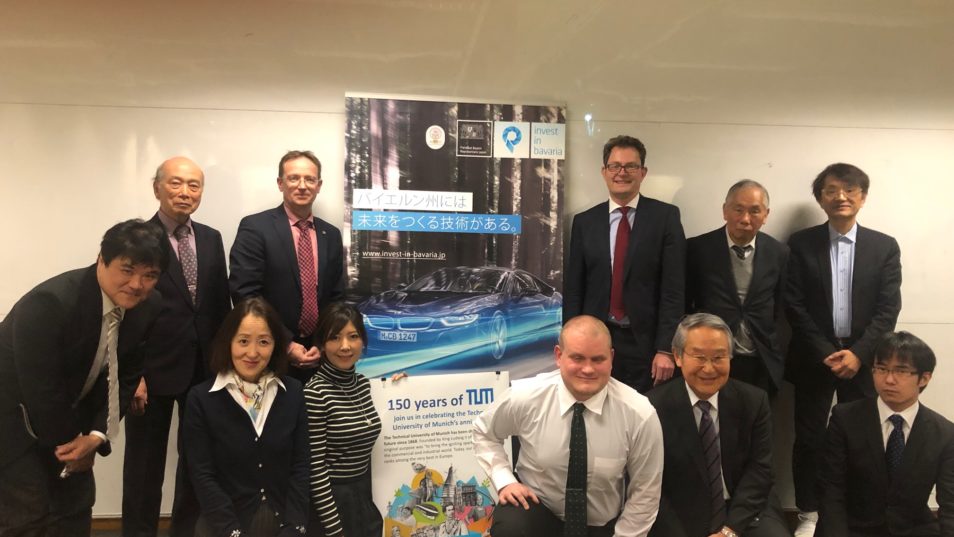AI Ethics and Autonomous Car Driving
 © University of Tokyo
© University of Tokyo
University of Tokyo (UT) and Technical University of Munich (TUM) are working together as strategic partners.
On February 8, 2019 afternoon the two universities organized the German-Japanese Workshop on AI Ethics and Autonomous Car Driving at UT Hongo Campus, supported by DWIH Tokyo and State of Bavaria – Japan Office. This interdisciplinary workshop on ethics of AI attracted 70 interested audience from academia (science, engineering, economy, law, philosophy and religion) and industry from Japan, Germany and also France.
This workshop can be understood as one of the follow-up activities of the “1st Japanese-German-French DWIH Symposium on Artificial Intelligence” in November 2018.
As the highlight of the Workshop the Keynote was given by Prof. Dr. Christoph Lütge, Director of TUM Institute for Ethics in Artificial Intelligence, which is starting in the spring 2019. He first made an overview on ethical benefits and risks of innovation using many recent examples and discussed about the business ethics for digital technologies and responsibilities of “digital tech. companies”. Then he talked about the need for a “Code” both for manufacturers and society at large.
The German Ethics Code for Automated Driving by the Ethics Committee, consisting of 14 experts from wide range of disciplines including Prof. Lütge himself, presented its final report in June 2017 with 5 ethical guidelines and also several “open questions”.
Finally, he introduced “AI4People” project in European level, which was concluded in November 2018 with the outcomes “Five Key Principles” including “Explicability”, which was the most interested discussion subject of this workshop.
After the greetings by Prof. H. Tanaka, Dean of III/GSIII, UT, Prof. K. Mainzer, TUM, and Dr. C. Geltinger, State of Bavaria – Japan Office, the report on “Japan’s 7 Human-centric Principles of AI” (edited by Prof O. Sudo, UT as the chief) was introduced by Prof. K. Ito, UT, which will be proposed at the G20 Summit in June.
As the problem setting, “the necessity for accountable AI” was stated and then the Panel Discussion under the moderation of Prof. K. Ito started.
Prof. I. Hagiwara, Meiji Univ. (former Nissan Motor) introduced his “Laplace transform type neural network built in Fuzzy inference second class” which has possibility to get the causal inference for the practical application, which stimulated further discussions.
Prof. Y. Nakamura, UT, talked about autonomy, ethic and human dignity referring to International Humanitarian Law and discussed about the danger of “Lethal Autonomous Weapon System”.
It was concluded further continuation of German-Japanese discussions involving industries on this hot issue.
Register for our Newsletter!
The DWIH Tokyo Newsletter provides timely information on German-Japanese funding programs, event invitations and news from research and innovation. Sign up now!
